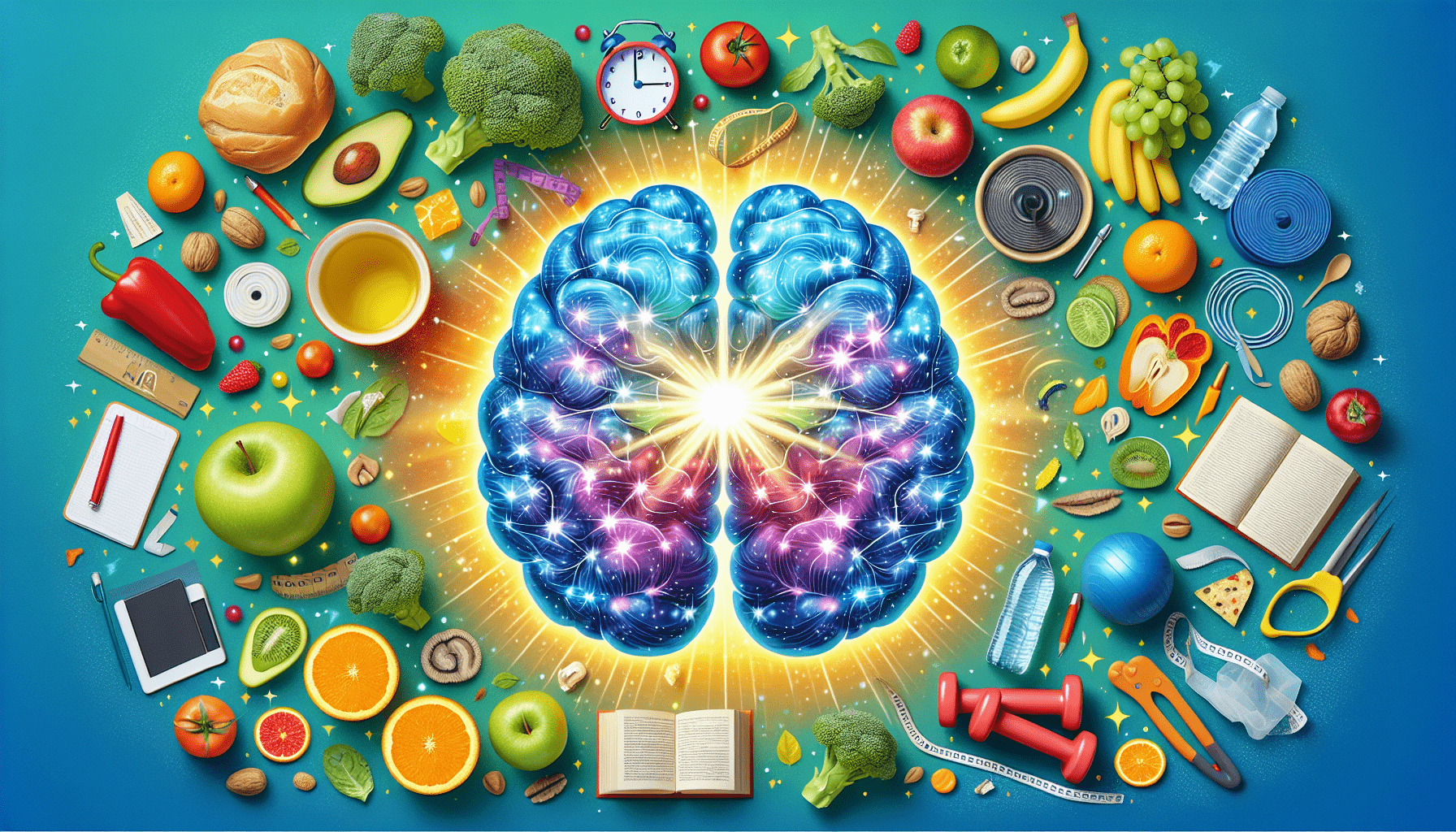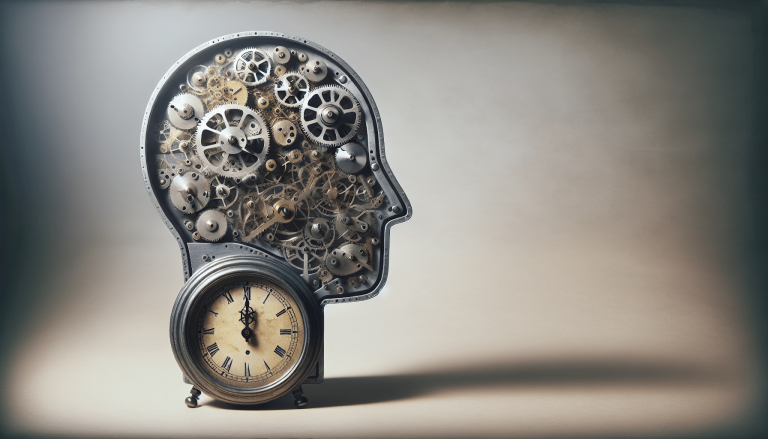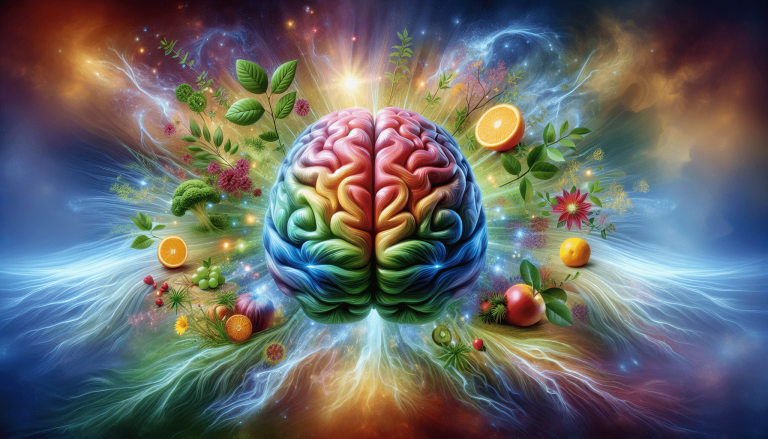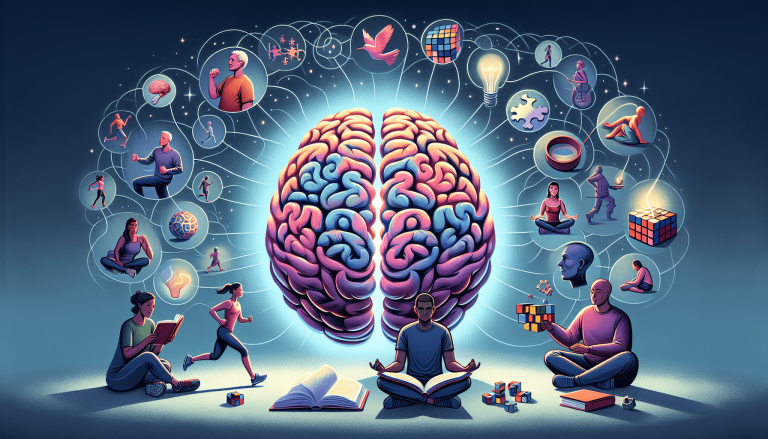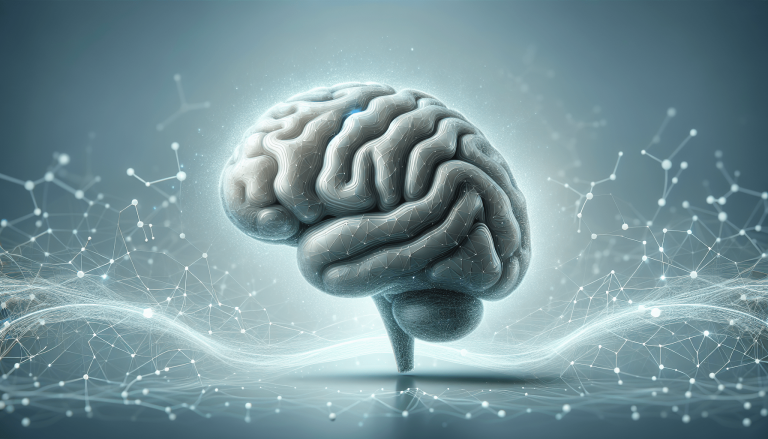What Are 4 Ways To Keep The Brain Healthy?
Hey there! We all know how important it is to take care of our physical health, but what about our mental health? It’s just as crucial, and that’s why today we’re going to talk about 4 simple ways to keep your brain healthy. So if you’re ready to boost your mental well-being and enhance your cognitive abilities, let’s dive right in!
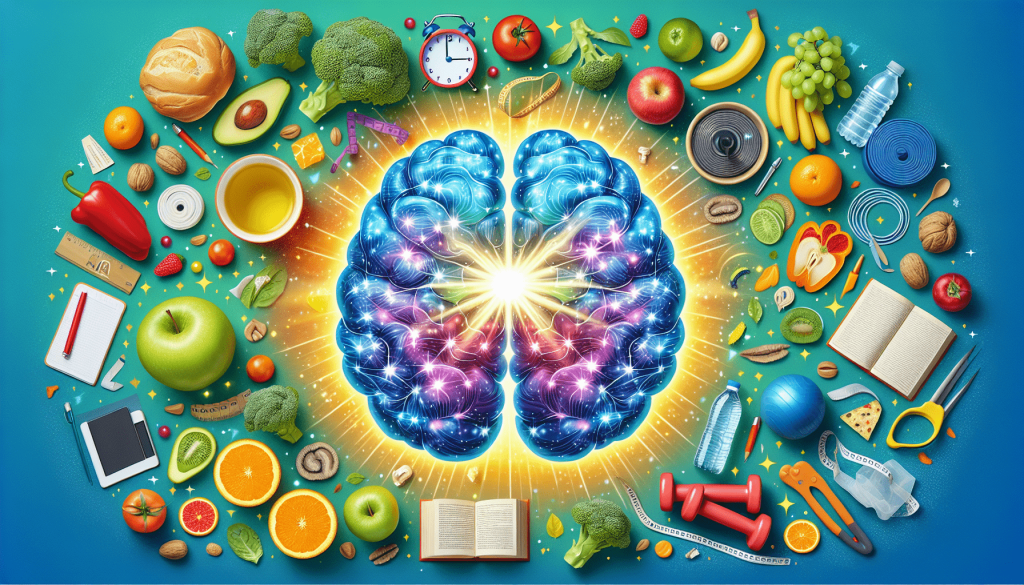
Physical Exercise
Cardiovascular Exercise
Engaging in cardiovascular exercise, such as running, cycling, or swimming, is not only beneficial for your overall physical health, but it also has a positive impact on your brain. When you engage in cardiovascular exercise, your heart rate increases, which in turn increases blood flow to the brain. This increased blood flow brings more oxygen and nutrients to the brain, promoting its health and functioning.
Strength Training
Strength training, also known as resistance training, involves working out with weights or using your own body weight to build strength and muscle. While it may primarily be associated with physical benefits, such as increased muscle mass and improved bone density, strength training also has significant benefits for the brain. It has been shown to improve cognitive function and memory, as well as increase the production of growth factors that support the health of brain cells.
Yoga and Meditation
Yoga and meditation are practices that combine physical postures, breathing exercises, and mindfulness techniques. These practices have been found to have numerous benefits for brain health. Yoga and meditation help reduce stress, improve focus and attention, and enhance overall mental well-being. They have also been shown to increase the size of the hippocampus, the region of the brain associated with memory and learning.
Neurobic Exercises
Neurobic exercises are activities that challenge and stimulate the brain in unique and unexpected ways. These exercises involve breaking routine and engaging in activities that activate multiple senses or require mental effort. Some examples of neurobic exercises include brushing your teeth with your non-dominant hand, taking a different route to work, or trying a new hobby or skill. By incorporating neurobic exercises into your routine, you can enhance neural connections and promote brain plasticity.
Brain-Boosting Diet
Omega-3 Fatty Acids
Omega-3 fatty acids, found in fatty fish such as salmon and sardines, as well as walnuts, flaxseeds, and chia seeds, have been linked to improved brain health. These essential fatty acids are important for the structure and function of brain cells, as well as reducing inflammation in the brain. Including omega-3 fatty acids in your diet can support cognitive function, improve memory, and reduce the risk of age-related mental decline.
Antioxidant-Rich Foods
Antioxidants are compounds that help protect the brain from oxidative stress and damage caused by harmful free radicals. Foods rich in antioxidants, such as berries, dark chocolate, and green leafy vegetables, can provide important nutrients that support brain health. These foods have been associated with improved cognitive function, memory retention, and a reduced risk of neurodegenerative diseases.
Vitamins and Minerals
Consuming a variety of vitamins and minerals is essential for optimal brain health. B vitamins, in particular, play a crucial role in brain function and can be found in foods such as whole grains, legumes, and leafy green vegetables. Additionally, minerals like iron, zinc, and magnesium are important for neurotransmitter function and can be obtained from foods like lean meats, nuts, and seeds.
Healthy Carbohydrates
Carbohydrates are the primary source of energy for the brain, so it is important to choose healthy carbohydrates that provide a steady supply of glucose to the brain. Opt for whole grains, fruits, and vegetables, which are rich in fiber and have a lower glycemic index, meaning they release glucose into the bloodstream at a slower rate. This helps maintain stable blood sugar levels and supports brain function.
Cognitive Activities
Mental Stimulation
Engaging in mentally stimulating activities, such as puzzles, reading, or learning a new language, can help keep your brain sharp and improve its cognitive abilities. Mental stimulation challenges your brain, promoting the growth of new neural connections and enhancing cognitive flexibility. Regularly engaging in activities that challenge your intellect can help improve memory, attention, and mental clarity.
Learning New Skills
Learning new skills not only broadens your knowledge but also stimulates your brain. Whether it’s playing a musical instrument, painting, or mastering a new sport, acquiring new skills requires your brain to adapt and learn. The process of learning activates different areas of the brain, improving neural connectivity and promoting cognitive function. By regularly challenging yourself to learn new things, you can keep your brain agile and enhance its overall performance.
Problem Solving
Engaging in problem-solving activities, such as puzzles, riddles, or strategy games, is an excellent way to exercise your brain and enhance its problem-solving abilities. These activities stimulate critical thinking and encourage the brain to find creative solutions. Regularly engaging in problem-solving exercises can improve your ability to think logically, make decisions, and solve complex problems in various areas of life.
Memory Games
Memory games, such as crosswords, Sudoku, or memory matching games, can be a fun and effective way to improve your memory and cognitive abilities. These games require you to focus, concentrate, and recall information, stimulating different areas of the brain associated with memory function. By regularly challenging your memory through games and exercises, you can improve your overall memory capacity and mental sharpness.
Quality Sleep and Stress Management
Sufficient Sleep
Getting enough sleep is crucial for optimal brain health. During sleep, the brain consolidates memories, repairs cellular damage, and flushes out toxins. Lack of sleep can impair cognitive function, memory, and attention. Aim for 7-9 hours of quality sleep each night to support brain health and overall well-being.
Establishing a Bedtime Routine
Establishing a consistent bedtime routine can help signal to your body that it’s time to wind down and prepare for sleep. Create a relaxing routine that includes activities such as reading a book, taking a warm bath, or practicing relaxation techniques. Avoid stimulating activities, like using electronic devices, right before bed, as they can interfere with your sleep quality.
Stress Reduction Techniques
Chronic stress can have detrimental effects on the brain, impairing cognitive function and promoting mental health disorders. Engaging in stress reduction techniques, such as deep breathing exercises, meditation, or yoga, can help lower stress levels and promote a sense of calm. These practices activate the relaxation response, reducing the production of stress hormones and promoting brain health.
Mindfulness and Relaxation
Practicing mindfulness and relaxation techniques can help cultivate a sense of presence, reduce anxiety, and improve overall mental well-being. Mindfulness involves focusing on the present moment and accepting it without judgment. This practice can improve attention, reduce stress, and enhance brain function. By incorporating mindfulness into your daily routine, you can support a healthy mind and a balanced life.

Social Interaction
Maintaining Relationships
Maintaining strong and meaningful relationships is important for overall well-being, including brain health. Social interaction stimulates the brain, enhances mood, and may even reduce the risk of cognitive decline. Stay connected with family and friends through regular communication, spending quality time together, and participating in shared activities.
Joining Clubs or Organizations
Joining clubs or organizations that align with your interests and hobbies is a great way to expand your social network and engage in regular social interactions. Whether it’s a book club, a sports team, or a volunteer organization, participating in group activities can stimulate the brain, promote a sense of belonging, and provide opportunities for new experiences and learning.
Volunteering
Volunteering not only benefits the community but also has positive effects on brain health. Engaging in volunteer work provides a sense of purpose and fulfillment, boosting mood and overall well-being. It also offers opportunities for social interaction, which keeps the brain active and engaged. Look for volunteer opportunities in your community or join organizations that support causes you care about.
Group Activities
Participating in group activities, such as group fitness classes, team sports, or hobby groups, can provide both physical and social benefits for your brain. These activities encourage social interaction, coordination, and cooperation, stimulating different areas of the brain. Engaging in group activities can improve cognitive function, memory, and overall mental well-being.
Brain-Boosting Supplements
Omega-3 Fatty Acid Supplements
If you’re unable to get sufficient omega-3 fatty acids through your diet, you may consider taking omega-3 supplements. These supplements, typically derived from fish oil, can provide the essential fatty acids necessary for brain health and function. However, it’s important to consult with a healthcare professional before starting any new supplementation regimen.
Vitamin B Complex
B vitamins, including B6, B12, and folic acid, play a crucial role in brain health and functioning. Taking a vitamin B complex supplement can help ensure you’re getting an adequate intake of these important nutrients. B vitamins are involved in the production of neurotransmitters, the chemicals that facilitate communication between brain cells, and support overall cognitive function.
Ginkgo Biloba
Ginkgo biloba is an herbal supplement derived from the leaves of the ginkgo tree. It has been used for centuries in traditional medicine for its potential cognitive-enhancing properties. Ginkgo biloba is believed to improve blood flow to the brain and have antioxidant effects, which may support brain health. However, more research is needed to fully understand its benefits and potential side effects.
Fish Oil
Fish oil, derived from fatty fish like salmon and mackerel, is rich in omega-3 fatty acids EPA and DHA. Taking fish oil supplements can help increase your intake of these essential fatty acids, which are important for brain health. Fish oil has been shown to improve cognitive function, reduce brain inflammation, and support overall brain health.
Brain-Training Apps and Games
Lumosity
Lumosity is a popular brain-training app that offers a wide range of games and activities designed to challenge various cognitive skills. The app provides personalized training programs that target memory, attention, problem-solving, and other cognitive abilities. Regular use of Lumosity can help improve cognitive function and keep your brain sharp.
Elevate
Elevate is another brain-training app that focuses on improving cognitive skills such as memory, reading comprehension, math, and problem-solving. The app offers daily workouts that adapt to your skill level and provide personalized training sessions. Elevate aims to enhance critical thinking, processing speed, and overall cognitive abilities.
Peak
Peak is a brain-training app that offers a variety of games and puzzles to boost memory, attention, creativity, and problem-solving. The app provides personalized workouts that adapt to your performance and target specific cognitive skills. Regular use of Peak can help improve cognitive function and mental agility.
CogniFit
CogniFit is a brain-training app designed to assess and train multiple cognitive skills, including memory, attention, coordination, and visual perception. The app offers a range of games and exercises that adapt to your performance, providing a personalized training experience. CogniFit aims to enhance cognitive abilities and overall brain health.
Staying Hydrated
Importance of Hydration
Staying hydrated is crucial for overall health, including brain health. The brain is composed mostly of water, and even mild dehydration can impair cognitive function and mood. Adequate hydration ensures optimal brain function, including concentration, memory, and mental clarity.
Water and Brain Function
Water is essential for proper brain function as it helps to regulate body temperature, deliver nutrients and oxygen to the brain, and remove waste products. Dehydration can lead to brain fog, fatigue, and difficulty concentrating. Aim to drink enough water throughout the day to stay properly hydrated and support optimal brain function.
Hydration Tips
To stay hydrated, it’s important to drink water regularly throughout the day, especially during periods of physical activity or hot weather. Carry a water bottle with you to remind yourself to drink water and make it easily accessible. You can also incorporate hydrating foods into your diet, such as fruits and vegetables with high water content.
Hydrating Foods
In addition to drinking water, consuming foods with high water content can contribute to your overall hydration. Fruits and vegetables like watermelon, cucumber, strawberries, and lettuce are excellent choices that not only provide hydration but also important vitamins and minerals for brain health. Including these hydrating foods in your diet can support your brain’s hydration needs.
Reducing Alcohol Consumption and Avoiding Smoking
Alcohol’s Negative Impact on the Brain
Excessive alcohol consumption can have detrimental effects on brain health. Alcohol is a neurotoxin that can damage brain cells and disrupt neurotransmitter function. Chronic alcohol abuse can lead to memory problems, cognitive impairment, and an increased risk of developing neurodegenerative disorders like dementia. Limiting alcohol intake is important for maintaining a healthy brain.
Smoking and Brain Health
Smoking is not only harmful to your lungs and cardiovascular system but also has negative effects on brain health. The chemicals in tobacco smoke can narrow blood vessels, reducing blood flow to the brain and impairing its function. Smoking has been linked to an increased risk of stroke, cognitive decline, and neurodegenerative diseases. Quitting smoking is crucial for protecting your brain health.
Strategies to Reduce Alcohol Consumption
If you find that you’re consuming alcohol in excess, there are strategies you can implement to reduce your consumption. Set limits for yourself and stick to them, such as only consuming alcohol on certain days or limiting the number of drinks per occasion. Find alternative activities to engage in that don’t involve alcohol, such as exercising, pursuing a hobby, or spending time with friends who don’t heavily drink.
Methods to Quit Smoking
Quitting smoking is a challenging but worthwhile endeavor for your overall health, including brain health. There are numerous methods and resources available to help you quit smoking, such as nicotine replacement therapies, medications, and support groups. Consider reaching out to healthcare professionals or support services for guidance and assistance in your journey to becoming smoke-free.
Keeping the Mind Active
Reading
Reading is a fantastic way to keep your mind active and engaged. It exposes you to new ideas, knowledge, and perspectives, stimulating your imagination and critical thinking skills. Whether you prefer fiction, non-fiction, or magazines, regularly reading helps to maintain cognitive abilities, improves vocabulary, and enhances memory.
Puzzles and Brain Teasers
Engaging in puzzles and brain teasers, such as crosswords, Sudoku, or chess, challenges your brain and helps maintain cognitive function. These activities require problem-solving, critical thinking, and memory recall. Regularly solving puzzles and brain teasers can boost mental agility, improve concentration, and provide a fun way to exercise your brain.
Writing or Journaling
Writing or journaling is an excellent way to express your thoughts and emotions while also stimulating your brain. Putting pen to paper enhances cognitive function, language skills, and creativity. You can start by writing about your day, keeping a gratitude journal, or even taking up creative writing. Regularly engaging in writing exercises can help improve memory, clarity of thought, and overall mental well-being.
Hobbies and Creative Activities
Pursuing hobbies and engaging in creative activities has been found to have numerous benefits for brain health. Whether it’s painting, gardening, playing a musical instrument, or cooking, these activities activate different areas of the brain and promote neural connectivity. By regularly participating in hobbies and creative pursuits, you can improve cognitive function, reduce stress, and promote overall well-being.
In conclusion, there are many ways to keep your brain healthy and functioning at its best. Engaging in regular physical exercise, maintaining a brain-boosting diet, challenging your mind through cognitive activities, prioritizing quality sleep and stress management, fostering social interaction, considering brain-boosting supplements, using brain-training apps and games, staying hydrated, reducing alcohol consumption and avoiding smoking, and keeping your mind active through reading, puzzles, writing, and hobbies can all contribute to optimal brain health. Incorporating these practices into your daily routine can help support cognitive function, memory, attention, and overall mental well-being throughout your life. Remember, taking steps to care for your brain is a friendly and proactive way to invest in your long-term brain health.
Additional Resources

You may be skyrocketing your risk of dementia…and that’s why you need to know how easily you can reverse your brain function.
The mainstream media refuses to publicize this….
This amazing breakthrough is designed to repair mental acuity and give anyone who uses it the best mental alertness with improved memory and focus in no time.
Find out for yourself now… Click: https://bit.ly/Repair-Mental-Acuity

